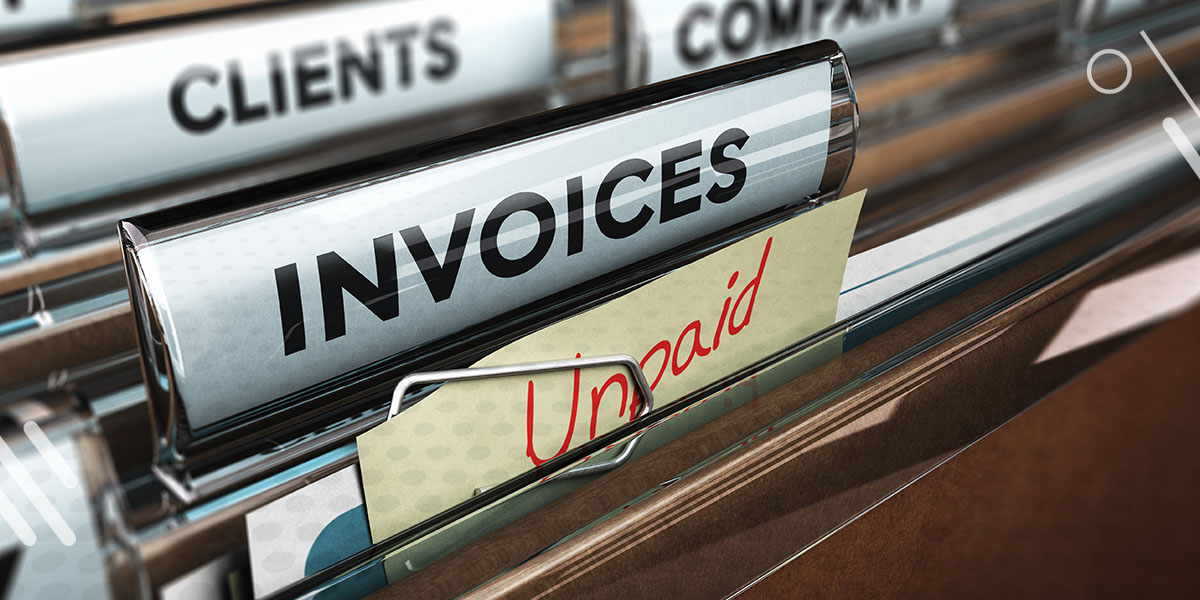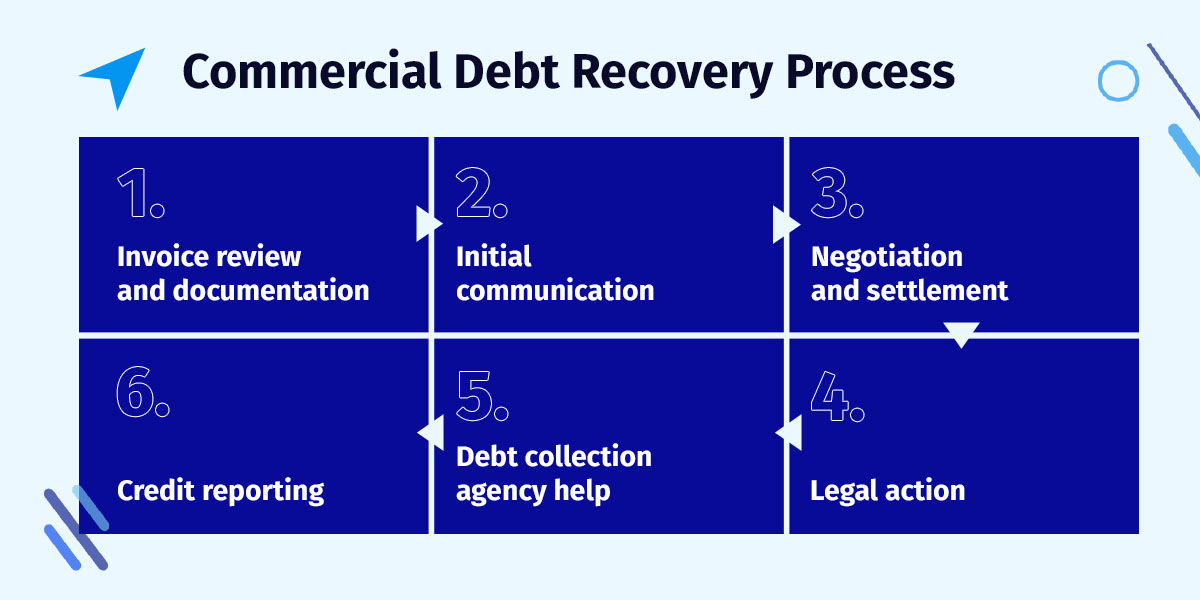- New Customer Inquiries (866) 551-4684
- Customer Service (214) 387-8068
- Make A Payment (866) 558-3328
- Client Portal
- Consumer Support

Commercial collections are critical to maintaining your organization’s financial stability. Business or commercial debt collection is the process of recovering money customers owe your operations. Unpaid invoices hamper your cash flow, which can negatively impact your company’s credit score ratings.
You must take action and recover these funds to ensure your business’s financial stability and growth. Recovering unpaid invoices requires successful communication, regulatory compliance and due diligence.
Both consumer and commercial debt collection are processes of recovering unpaid debts, but each has different customers and regulations. Here is a comparison of their similarities and distinctions:
| Consumer Debt Collection | Commercial Debt Collection | |
| Consumer Type: |
Debts owed by individuals for family, household or personal purposes. This includes:
|
Outstanding payments from businesses, entrepreneurs or commercial entities. This includes:
|
| Regulatory Framework: | Subject to federal and state laws that protect consumer rights, including the Fair Debt Collection Practices Act (FDCPA), which regulates debt collector communication and prohibits abusive or deceptive practices. | Subject to general contract law and commercial statutes. Debt collectors must still adhere to ethical and legal standards in collection efforts. |
| Required Documentation: | Debt collectors must provide disclosures and notifications like debt validation and notices of their legal rights. | Commercial debt collection agencies are not regulated by the FDCPA. Their communications can go through multiple channels and don’t have the same limitations and regulations that consumer debt collections require. |
It’s best to recover unpaid invoices within 30 days following the original due date. This is when you will most likely have businesses pay their bills. If the debt is outstanding for more than 60 days, conduct a commercial debt collection. Neglecting unpaid invoices can have a detrimental impact on businesses — especially small and medium enterprises — in the following ways:
Assess whether pursuing a debt will cost you more to collect than it is worth. Sometimes, it might be better to write off small amounts if you need to preserve a business relationship.
Recovering your unpaid invoices is a systematic approach to secure your payment from delinquent customers. The typical steps to follow in the debt collection process include:

It is vital to maintain detailed records of all your communication, payment agreements and collection efforts in case you need to reference them for disputes or legal proceedings. Each debt collection may require a unique approach, depending on the customer’s responsiveness and specific circumstances. However, in all business invoice collection attempts, prioritize clear communication, adherence to legal guidelines and persistence throughout the process.
Communication plays a critical role in effective debt collection. You will see increased invoice collection rates when you maintain professionalism and customer relationships during this process by incorporating these strategies:
In an ideal world, your business will not need to send an unpaid invoice to collections. While you may deal with unpaid invoices from time to time, you can implement procedures to reduce this occurrence:
Various intricacies can ensure successful unpaid invoice collections. With professionalism and diligence, your business can successfully navigate commercial collections to secure timely payments.
When you get paid, we get paid — that is the policy at Southwest Recovery Services, LLC. With our HFMA, ACA, AAGF and NARPM certifications, we offer business debt recovery solutions and accounts receivable management with excellent client services and innovative strategies. Increase your commercial debt collection and enjoy 24/7 online support risk-free. Contact us today to request our invoice collection agency services or for more information on the commercial debt recovery process.


We make it fast and easy to refer past due and delinquent accounts to our professional recovery agents. You decide the range on what you will accept on each case, and you ONLY pay a percentage of what we actually collect to resolve the case. Ready to get started, or want to learn more? Fill out this form and a dedicate account manager will call you to get started.